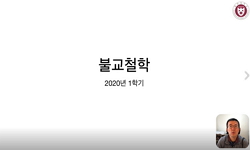본문은 인도에서 발생한 불교의 주요한 사상 가운데의 하나인 인과응보설이 중국 위진남북조시대에 공전의 유행을 하면서, 중국 전통문화의 입장을 옹호하는 사상가들의 반발을 초래하게 ...
http://chineseinput.net/에서 pinyin(병음)방식으로 중국어를 변환할 수 있습니다.
변환된 중국어를 복사하여 사용하시면 됩니다.
- 中文 을 입력하시려면 zhongwen을 입력하시고 space를누르시면됩니다.
- 北京 을 입력하시려면 beijing을 입력하시고 space를 누르시면 됩니다.
https://www.riss.kr/link?id=A108207746
- 저자
- 발행기관
- 학술지명
- 권호사항
-
발행연도
2022
-
작성언어
-
- 주제어
-
KDC
900
-
등재정보
KCI등재
-
자료형태
학술저널
- 발행기관 URL
-
수록면
123-143(21쪽)
- 제공처
-
0
상세조회 -
0
다운로드
부가정보
국문 초록 (Abstract)
본문은 인도에서 발생한 불교의 주요한 사상 가운데의 하나인 인과응보설이 중국 위진남북조시대에 공전의 유행을 하면서, 중국 전통문화의 입장을 옹호하는 사상가들의 반발을 초래하게 된 점에 착안하여 불교와 중국 전통사상가들의 관점을 비교하는 방식으로 논의를 진행했다. 불교에서 말하는 인과응보는 선악의 원인이 있으면 반드시 그에 상응하는 즐거움과 고통의 결과가 있는 것을 의미한다. 불교에서는 여기에 업業 개념을 접목시켰는데, 이러한 업은 원래는 인간의 모든 행위를 지칭하는 것으로 어떠한 형태의 행위에도 반드시 선악과 길흉의 응보를 가져 온다는 인과 관념과 연결되고, 거기에서 과거·현재·미래의 삼세에 걸친 윤회사상이 중국인의 세계관에 윤색 되었던 것이다.
위진남북조시대에 유행했던 인과응보 사상은 불교 윤회설의 근간을 형성하는 매우 관건적인 성격을 가진 사상이라고 할 수 있다. 이와 같은 중국 육조시기 불교 윤회설의 사상적 토대가 되는 인과응보 사상에 대하여 본문에서는 불교와 중국의 전통적인 인과응보 사상과 인과응보 사상의 논쟁배경을 중심으로 논의를 진행해보도록 하겠다.
다국어 초록 (Multilingual Abstract)
The text examines the fact that the retributive justice theory of Buddhism that occurred in India became widespread in the period of Wei-Jin Southern and Northern dynasties in China, which led to a revolt from traditional Chinese thinkers. So, in the ...
The text examines the fact that the retributive justice theory of Buddhism that occurred in India became widespread in the period of Wei-Jin Southern and Northern dynasties in China, which led to a revolt from traditional Chinese thinkers. So, in the text, the discussion was conducted by comparing the viewpoints of Buddhism and traditional Chinese thinkers. Retributive justice in Buddhism means that if there is a cause of good or evil, there must be a result of joy and suffering. In Buddhism, the concept of karma was connected here, and this karma originally refers to all human actions. In other words, it is connected with the retributive justice that any form of human behavior always brings good and evil, happiness, and unfortunate results. In addition, to this content, three generations of the past, present and future were added to the Chinese worldview.
The idea of retributive justice, which was popular in the period of Wei-Jin Southern and Northern dynasties in China, can be said to be a very important idea that forms the root of Buddhist samsara. The retributive justice idea, which is the ideological foundation of the Buddhist samsara during the six dynasties in China, will be discussed, focusing on the background of the controversy between Buddhism and the traditional Chinese idea of retributive justice and the idea of retributive justice.
동일학술지(권/호) 다른 논문
-
- 영산대학교 동양문화연구원
- 이형성 ( Lee Hyung-sung )
- 2022
- KCI등재
-
- 영산대학교 동양문화연구원
- 이수동 ( Lee Soodong )
- 2022
- KCI등재
-
- 영산대학교 동양문화연구원
- 송봉구 ( Song Bong Gu )
- 2022
- KCI등재
-
음양의 대립과 통일에 관한 인문학적 고찰 ― 역과 사물의 상관성에 대한 사유를 중심으로 ―
- 영산대학교 동양문화연구원
- 박규선 ( Park Gyu Seon )
- 2022
- KCI등재





 KCI
KCI KISS
KISS






